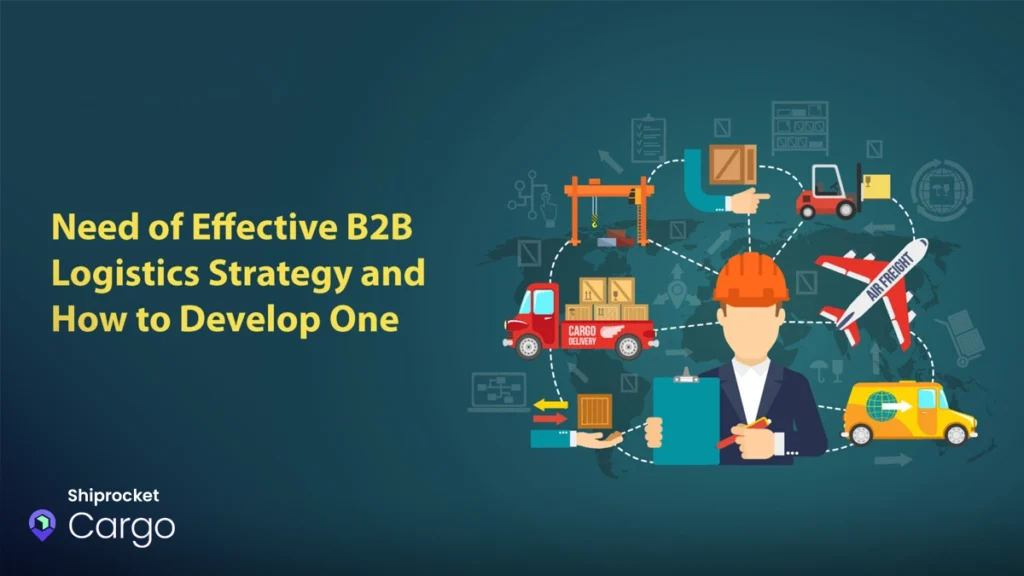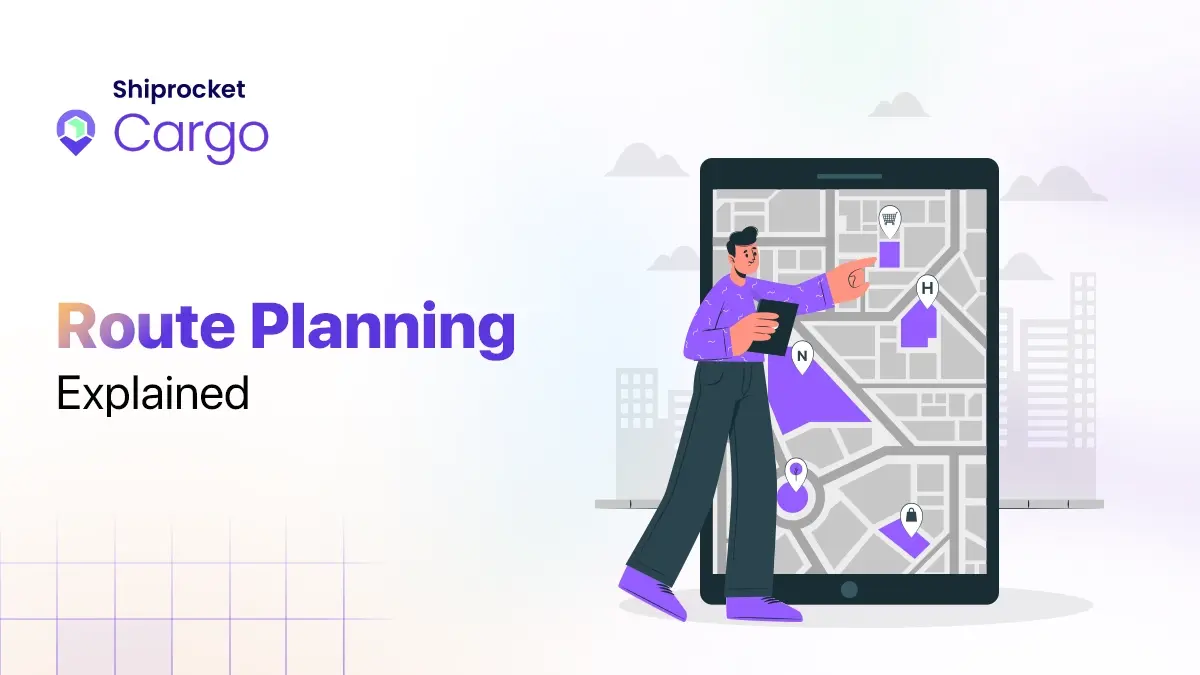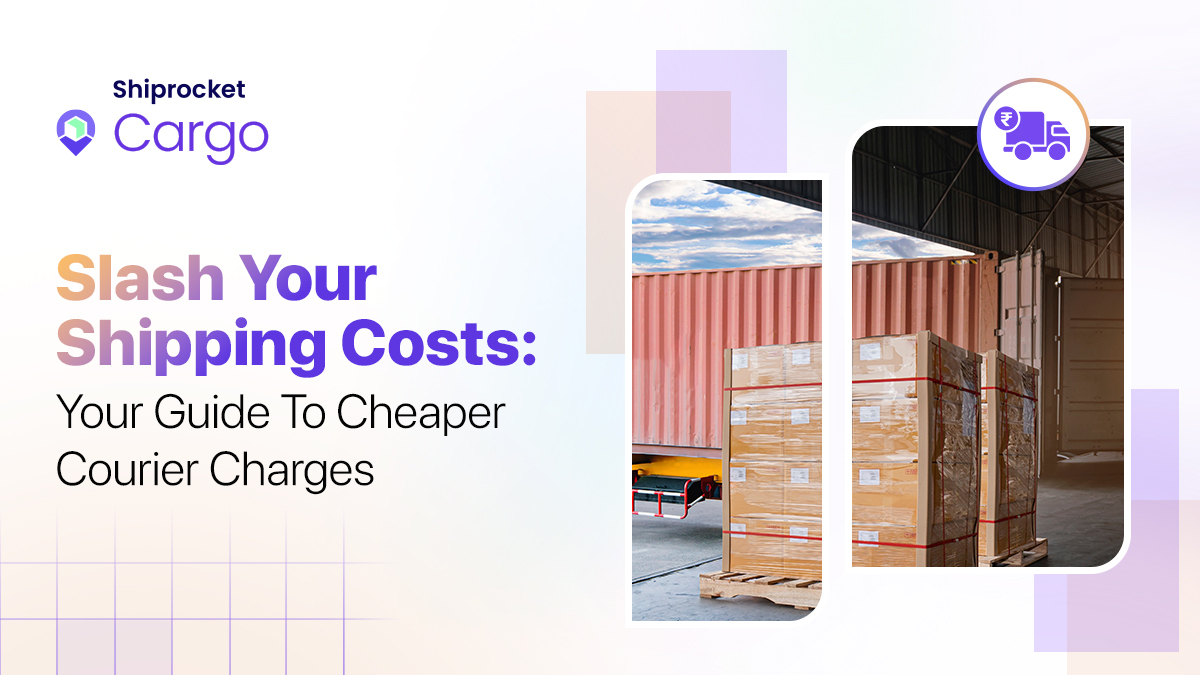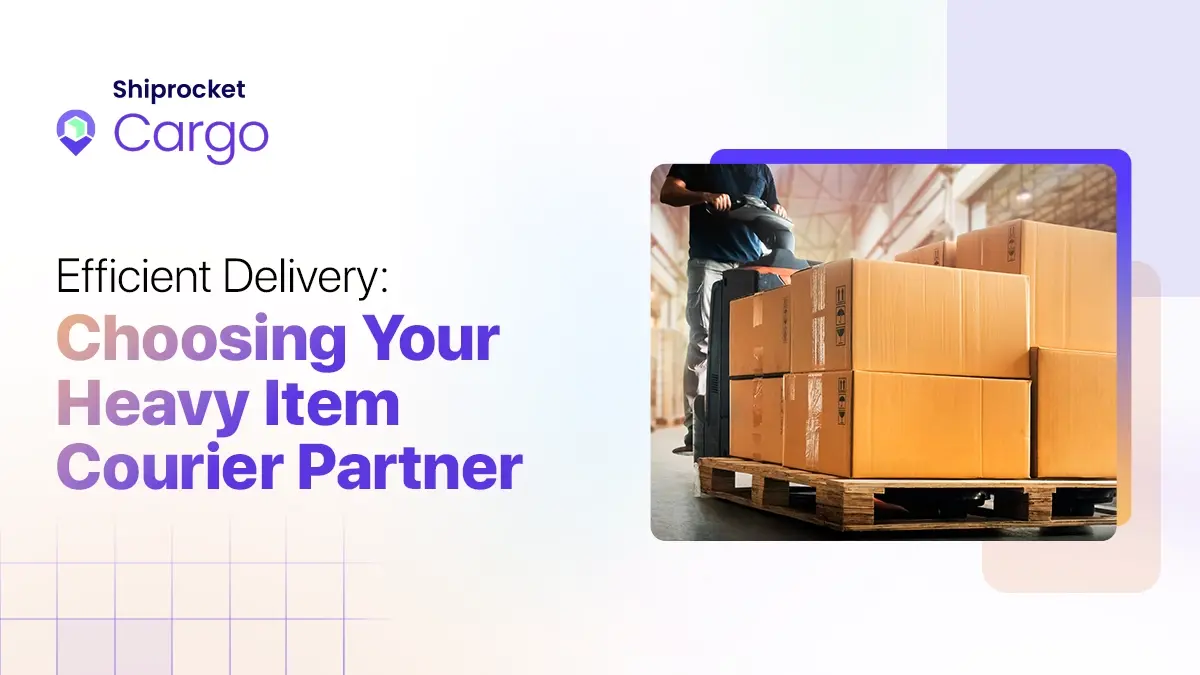Why Businesses Need Effective B2B Logistics Strategy and How They Can Develop One

In today’s world, developing an effective B2B logistics strategy has become vital for value addition for businesses. According to a Statista report, the Indian logistics market is projected to grow to $380 billion by the end of 2030 with an expected CAGR of 12%. A strategic logistics plan is a framework that helps improve planning, implementing, and controlling supply chain management. The tactics developed in B2B logistics can help businesses coordinate their plans, goals, and policies to reduce costs while improving delivery efficiency.
Implementing an effective B2B strategy is crucial for businesses to ensure the high performance of the supply chain. The blueprint helps the companies to analyze and identify the necessary organizational and functional changes which can help to boost the growth of the business. In other words, brands can ensure on-time deliveries to the right clients and enhance their customer experience with effective B2B logistics strategies.
What is B2B Logistics Strategy?
A B2B logistics strategy comprises principles, techniques, and attitudes that guide the coordination of plans, goals, and policies between business entities across the entire supply chain. The B2B logistics strategy is designed to smoothen the transportation of goods while overcoming multiple shipping challenges and improving the shipping cost.
Types of B2B Logistics Strategies for Businesses
An organization can focus on two types of B2B logistics strategies to improve its transactions with other businesses. These are as follows:
Inbound B2B Logistics Strategy
Inbound logistics focuses on the movement of resources or products into the business. These resources are then used to create products that can be dispatched to retailers or stores. A typical inbound B2B logistics strategy should include proper time slots for unloading the delivery vehicle, sufficient workforce and infrastructure to park the trucks, and finally, timely reliving of the delivery vehicle after unloading.
Outbound B2B Logistics
Outbound B2B logistics is the major driving force behind the growth of a B2B business. Because of this type of logistics, organizations can ship their products to clients and retailers. Therefore B2B businesses must have an effective outbound logistics strategy for successful operations.
For outbound B2B logistics services, businesses must consider strategies such as packaging the product timely for pickups, reducing the number of documentation, and finishing the loading process to ensure the vehicle leaves for delivery on time.
Why Do Businesses Need B2B Logistics Strategies?
B2B logistics strategies allow businesses to develop a roadmap that can help them gain a substantial edge over the competition. Some of the other benefits of B2B logistics strategies are as follows:
Better Logistics Management
B2B logistics management is a crucial aspect of the growth of any business. Effective B2B logistics strategies allow companies to understand the best possible routes, suppliers, and acquisition cycle to ensure that the resources arrive at the businesses on time. Moreover, the B2B logistics strategies also help the businesses manage the vehicle, avoiding delays in shipment pickups and deliveries, resulting in better logistics operations for the organization.
Material Resourcing
B2B logistics strategies help businesses calculate and manage the contributing factors that affect the cost of shipping. These factors include backorder delays, lockouts, extraneous fees, shipping costs, and competitor priority rankings. Finding the right source for any given material requires a good understanding of all the factors. With the help of effective B2B logistics, businesses can take account of parameters such as the distance of the source to the destination and shipping costs from one zone to another. Moreover, with b2b strategies, organizations can also calculate add-on services costs that can further help the businesses to improve their material resourcing.
Improved Route Management
Regarding B2B logistics, the movement of goods usually happens through trucks. Most of the time, certain routes might be closed for a specific period. With robust B2B logistics strategies, businesses can identify such situations through enhanced route management processes resulting in on-time deliveries.
Provides Competitive Edge
An effective B2B logistics strategy can help b2b companies to gain fresh insights into the demand and supply cycle, order management, inventory management, shipping costs, and preferred mode of transportation by the clients. Using the data by analyzing these factors, companies can effectively gain a competitive edge against their competitors.
How to Develop Effective B2B Logistics Strategies?
Let’s look at some of the tips that can help businesses to develop B2B logistics strategies:
Leverage Digital Technologies
B2B businesses can develop a logistics blueprint that connects their businesses with suppliers. Irrespective of the location of the supplier, the new-age digital technologies can bring the two entities closer. Moreover, digital transformation can result in the growth, innovation, and sustainability of a B2B business.
Identify the Business KPI
It is crucial for businesses to analyze key performance indicators or KPIs to develop robust B2B logistics strategies. By analyzing KPIs, organizations can understand how their logistics operations are moving and can achieve their goals and objectives. Businesses should understand on what parameters the logistics operation depends. Whether it will be the shipping cost, the number of vehicles, or the time of pickups and deliveries.
Implement Innovative Solutions
Implementing an out-of-the-box solution that can be configured fully is always advisable. For instance, this allows the organization to efficiently personalize certain aspects per the supply chain’s needs. Businesses can choose the best order management software to manage, organize, and prioritize their order. The B2B logistics strategy incorporates the changes and updates it, which eventually helps the company to stay ahead of the competitors.
Use Collaborative Logistics
Collaborative logistics across the network of suppliers is necessary to improve efficiency and visibility. Today B2B companies are not solely concerned with their performance as they work together with competitors to enhance the overall logistics operations. Collaboration initiatives can be one of the best add-ons to implement in the B2B logistics strategy to develop a roadmap for perpetual growth.
How Shiprocket Cargo Helps B2B Businesses?
Shiprocket Cargo is a tech-enabled B2B bulk shipment platform designed to cater to the shipping requirements of B2B businesses. The company offers seamless B2B bulk shipping by aligning the orders with some of the most prominent freight carriers across India.
Additionally, Shiprocket Cargo allows organizations to streamline their business logistics by providing unique dashboards that help the stakeholders to manage their B2B shipment at their fingertips. Shiprocket Cargo delivers features such as appointment-based deliveries and electronic proof of deliveries and works on models such as multiple vehicles, multiple locations, single vehicles, and multiple locations. Businesses can avail of the features based on their requirements.
Conclusion
B2B logistics have become an essential part of business operations and growth. Because of this logistics, an organization gains raw materials which can be converted into products that shall be further delivered to the retailers. Therefore, smooth B2B logistics is a must for any business’ growth.
To maintain sustainability in B2B logistics operations, businesses must have effective logistics strategies that allow them to retain the speed of shipping while keeping the cost of operations at an optimal level. To achieve these, businesses are aligning themselves with B2B bulk shipment enablers such as Shiprocket Cargo to help them grow substantially in the market.



